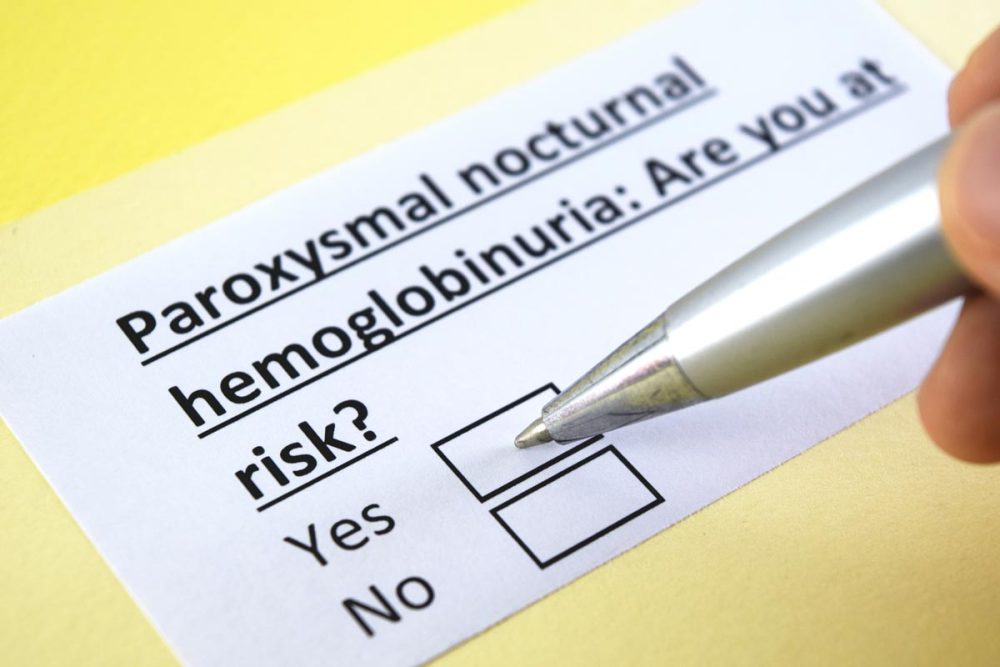Advertisment
Fabhalta (iptacopan) receives positive CHMP opinion as first oral monotherapy for adult patients with paroxysmal nocturnal hemoglobinuria – Novartis

Novartis announced that the Committee for Medicinal Products for Human Use (CHMP) of the European Medicines Agency (EMA) has adopted a positive opinion and recommended granting a marketing authorization for Fabhalta (iptacopan) for the treatment of adults with paroxysmal nocturnal hemoglobinuria (PNH) who have hemolytic anemia.
“With a robust body of evidence and a demonstrated safety profile, Fabhalta could be practice-changing for patients, helping relieve burdens experienced by people living with PNH,” said Antonio Risitano, M.D., Ph.D., President of the International PNH Interest Group and Head of the Hematology and Hematopoietic Transplant Unit, Reference Center for Aplastic Anemia and Paroxysmal Nocturnal Hemoglobinuria at the AORN San Giuseppe Moscati, Avellino, Italy. “In clinical studies, oral iptacopan demonstrated superior hemoglobin improvement without the need for red blood cell transfusions compared to anti-C5 therapies, leading to normalization of hemoglobin in the majority of patients—a potentially groundbreaking benefit for those living with this chronic blood disorder.”
PNH is a rare and debilitating chronic blood disorder that occurs when blood cells which are intrinsically susceptible to a part of the immune system called the complement system expand over normal blood cells due to a permissive immune environment. PNH is characterized by hemolysis, bone marrow failure, and thrombosis in varying combinations and levels of severity. Current anti-C5 treatments are administered via infusion or subcutaneous injection and may leave PNH symptoms uncontrolled. Up to 50% of patients on anti-C5 treatment may have persistent anemia with 23-39% remaining dependent on blood transfusions, and the majority (75-89%) of patients on anti-C5 treatment remain fatigued.
.
The positive CHMP decision is based on robust data from the Phase III APPLY-PNH study in patients with residual anemia despite prior anti-C5 treatment who switched to Fabhalta vs. patients who stayed on anti-C5 treatment, and the Phase III APPOINT-PNH study in complement-inhibitor naïve patients. In APPLY-PNH, at 24 weeks, 82.3% of anti-C5-experienced Fabhalta patients achieved a sustained increase of Hb levels ?2 g/dL from baseline in the absence of transfusions vs. 2.0% for anti-C5 (difference of 80.2%, P<0.0001); in APPOINT-PNH, 92.2% of complement inhibitor-naïve patients using Fabhalta achieved this outcome. Similarly, in APPLY-PNH, results highlighted a transfusion avoidance rate of 94.8% for anti-C5-experienced Fabhalta patients vs. 25.9% for those on anti-C5 (difference of 68.9%, P<0.0001)18. In both studies, Fabhalta was also shown to control the destruction of red blood cells (RBCs) within the blood vessels, known as intravascular hemolysis (IVH), with mean lactate dehydrogenase (LDH) levels maintained at <1.5 x upper limit of normal. In APPLY-PNH, patients reported improvements in fatigue as measured by Functional Assessment of Chronic Illness Therapy – Fatigue [FACIT-F] scores. The safety profile of iptacopan was consistent across both APPLY-PNH and APPOINT-PNH studies.





